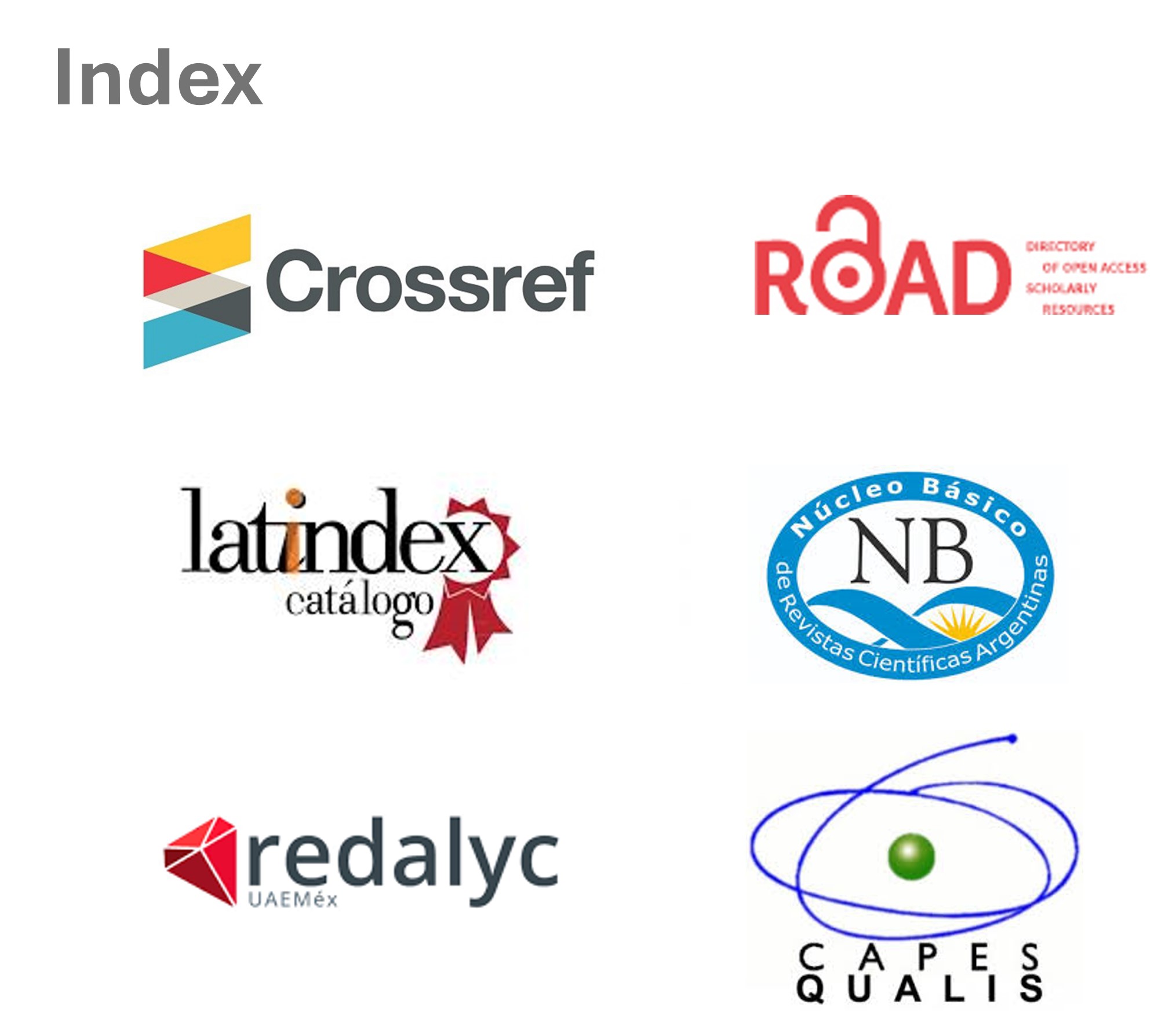Indicating ethnography as a strategy for understanding the technical action of the engineer in companies in the Blumenau Microregion
DOI:
https://doi.org/10.48160/18517072re51.39Keywords:
Engineering. Ethnography. Sociotechnical. Formation strategies., Engineering, Ethnography, Socio-technical, Training StrategiesAbstract
This article aims to present the results of a socio-technical investigation, in order to understand the work of engineers in their workspace, taking an interdisciplinary look at the design processes as well as product and process development. This is a field research, which investigated issues related to the technical action of the engineer in some textile companies in the Itajaí Valley region. Nowadays, the context of engineering education was discussed, and through an effort to approach the ethnographic method within companies, coupled with interviews, we sought to acquire the observed practices, regarding technical and non-technical objects, to use this knowledge in engineering education, considering technology and technological innovations as the result of a whole network of relationships. The results indicated that the technical action undertaken by the target engineers of this investigation develops within a network of relationships between objects whose spokespersons are people or social groups. As such, their practices demand leadership skills and competencies, interpersonal relationships, multidisciplinary teamwork, communication, investigative attitude, etc. Their knowledge can broaden engineering students' perspectives about the complexity of their professional work.
References
Andion, C. y M. Serva (2006), “A etnografia e os estudos organizacionais”, en Godoi, C; Bandeira-de-Mello, R. y A. Silva (orgs.): Pesquisa Qualitativa em Estudos Organizacionais: Paradigmas, Estratégias e Métodos, San Pablo, Saraiva, p. 147-179.
CNE: Conselho Nacional de Educação (2002), Resolução CNE/CES 11, Diário Oficial da União, sección 1, p. 32. Disponible en <http://portal.mec.gov.br/cne/arquivos/pdf/CES112002.pdf>. Consultado el 20 de noviembre de 2019.
CNE: Conselho Nacional De Educação (2019), Resolução Nº 2, Diário Oficial da União, sección 1, p. 43–44. Disponible en <http://portal.mec.gov.br/cne/arquivos/pdf/CES112002.pdf>. Consultado el 23 de noviembre de 2019.
Caria, T. (1999), “A reflexividade e a objectivação do olhar sociológico na investigação etnográfica”, Revista Crítica de Ciências Sociais, (55), p. 5-36.
Chiavenato, I. (1979), Teoria Geral da Administração, San Pablo, McGraw Hill do Brasil.
Culkierman, H. L. (2011), “Abrindo mão da polarização entre o técnico e o social/cultural. Pesquisas e Práticas Psicossociais”, 6, (2), Disponible en <http://www.ufsj.edu.br/portal2- repositorio/File/revistalapip/volume6_n2/Cukierman.pdf>. Consultado el 15 enero de 2020.
Evans-Pritchard, E. E. (1985), Antropologia social, Lisboa, Edições 70.
Federação das Indústrias do Estado de Santa Catarina (2017), Santa Catarina em Dados / Unidade de Política Econômica e Industrial, Florianópolis, FIESC.
Frehse, F. (2011), Ô da rua: O transeunte e o advento da modernidade em São Paulo, San Pablo, Edusp.
Garsten, C. (1994), Apple World: Core and Periphery in a Transnational Organizational Culture, Philadelphia-EUA, Coronet Books Inc.
Geertz, C. J. (1998), “Sobre a autoridade etnográfica”, em Geertz, C. J.: A experiência etnográfica: Antropologia e Literatura no século XX, Río de Janeiro, Editora UFRJ.
Giddens, A. (1991), As conseqüências da modernidade, San Pablo, Editora UNESP.
Gil, A. C. (2019), Métodos e técnicas de pesquisa social, San Pablo, Atlas Editora.
Holholm, T. (2011), The contrary forces of innovation: an ethnografy of innovation in the food industry, Basingstoke, Palgrave Macmillan.
J. Júnior, P. (1996), “Etnografia, antropologia e o universo organizacional”, RAP, Río de Janeiro, 30, (6), p. 105-121.
Knorr-Cetina, K. (1983), The manufacture of knowledge: an essay on the constructivist and contextual nature of science, Oxford, Pergamon.
Latour, B. y S. Woolgar (2011), A vida de laboratório: a produção dos fatos científicos, Río de Janeiro, Relume-Dumará.
Linsingen, I. v. (2015), “Perspectivas curriculares CTS para o ensino de engenharia: uma proposta de formação universitária”, Linhas críticas, Brasilia, 21, (45), p. 297-317. Disponible en <https://periodicos.unb.br/index.php/linhascriticas/article/view/4536>. Consultado el 16 de febrero de 2020.
Malinowski, B. K. (1978), “Argonautas do Pacífico Ocidental”,en: Os Pensadores, 3ª ed. San Pablo, Abril Cultural.
Mayo, E. (1933), The human problems of an industrial civilization, Nueva York, The Macmillan Company.
Marconi, M. A. y Lakatos, E. M., (2017), Metodologia científica. Ed. San Pablo, Atlas.
Merton, R. (1973), The sociology of science: theoretical and empirical investigations, Chicago, University of Chicago Press, p. 286-324.
Moraes, R. (2006), Da noite ao dia: tomada de consciência de pressupostos assumidos dentro das pesquisas sociais. Porto Alegre.
Nose, M. M. y D. A. N. Rebelatto (2001), “O perfil do engenheiro segundo as empresas”, 29º Congresso Brasileiro de Ensino de Engenharia, COBENGE, ABENGE, Puerto Alegre. Disponible en<http://www.abenge.org.br/cobenge/arquivos/18/trabalhos/DTC007.pdf>. Consultado El 22 de febrero de 2020.
Serva, M.y P. J. Junior (1995), “Observação participante e pesquisa em administração: uma postura antropológica”, Revista de Administração de Empresas, 35, (1), p. 64-79. Disponible en <https://www.scielo.br/scielo.php?script=sci_arttext&pid=S0034-75901995000300008>. Consultado el 25 de febrero de 2020.
Sismondo, S. (2014), An Introduction to science and technology studies. Malden, Blackwell.
Spiess, M. y M. A. Mattedi (2010), “Da associação à dissolução da rede sociotécnica do processador de texto Fácil: subsídios para uma etnografia da tecnologia”, MANA, 16, (2), p. 435-470. Disponible en <https://www.scielo.br/scielo.php?pid=S0104-93132010000200008&script=sci_abstract&tlng=pt>. Consultado el 27 de febrero de 2020.
Schartzman, H. (1993), Ethnography in organizations, Londres, Sage.
Veloso, L., Lucas, J y P. Rocha. (2015),“Uma etnografia das práticas e dos processos de produção de conhecimento em empresas e laboratórios”, Sociologia [online], 29, p.11-34. Disponible en <http://www.scielo.mec.pt/scielo.php?script=sci_arttext&pid=S0872-34192015000100002&lng=pt&nrm=iso>. Consultado el 14 de febrero de 2020.
Vinck, D. (org.) (2013), Engenheiros no cotidiano: Etnografia da atividade de projeto e de inovação, Belo Horizonte, Fabrefactum.
Weber, M. (1999), Economia y sociedad: Esbozo de sociologia comprensiva, 2ª ed., México, Fondo de Cultura Económica.
Woolgar, S. (1982), “Laboratory studies: a comment on the state of the art”, Social Studies of Science, 12, p. 481-498.
Published
How to Cite
Issue
Section
License
Copyright (c) 2021 Redes. Journal of Social Studies of Science and TechnologyThe documents published here are governed by the licensing criteria
Creative Commons Argentina.Atribución - No Comercial - Sin Obra Derivada 2.5 https://creativecommons.org/licenses/by-nc-nd/2.5/ar/













